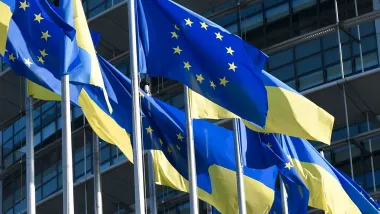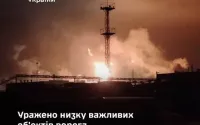The European Commission is considering a new financing plan for Ukraine — what is known

The EU is considering a new financing plan for Ukraine
According to three sources familiar with the matter, the European Commission is considering the possibility of filling Ukraine's colossal financing gap through funds raised from the EU's joint debt and bilateral grants from member states.
These two options, which will be set out in the Commission's options paper for Kyiv, which will be distributed to capitals in the coming weeks, are added to the so-called "reparation loan" option.
According to three sources familiar with the process, these options will be set out in a special Commission document that will be distributed to European capitals in the coming weeks.
They will complement the already proposed €140 billion "reparations loan" — an initiative that involves using frozen Russian assets held in the Brussels-based clearing house Euroclear.
The sources said a reparations loan was the Commission's preferred option for supporting Ukraine, despite Belgium's refusal to back the scheme at an EU leaders' summit in Brussels in October. Many member states, including Germany and the Baltic states, share this view.
Belgium successfully softened last month's Council conclusions, which ultimately tasked the Commission with developing "options" to support Kyiv's financial needs, which did not specifically mention the use of Russian assets frozen after Moscow's full-scale invasion of Ukraine in 2022.
Belgian Prime Minister Bart de Wever has vowed to block the reparations loan scheme unless other member states share the legal and financial risks associated with the loan and other EU countries use Russian sovereign assets held in their own jurisdictions alongside Belgium.
The Commission estimates that Russian sovereign assets worth €25 billion are held in the EU outside of Belgium.
Germany, France and Luxembourg are among other EU countries believed to own some of these assets.
Let us remind you that Ukraine's international partners have been looking for ways to cover the state budget deficit for the next year for a long time.
One of the key options is the creation of a "reparations loan", which would allow frozen Russian assets to be directed to the benefit of Ukraine.
At the same time, the European Union has postponed the adoption of a final decision on the use of these assets. The final discussion on the issue is scheduled for December.







